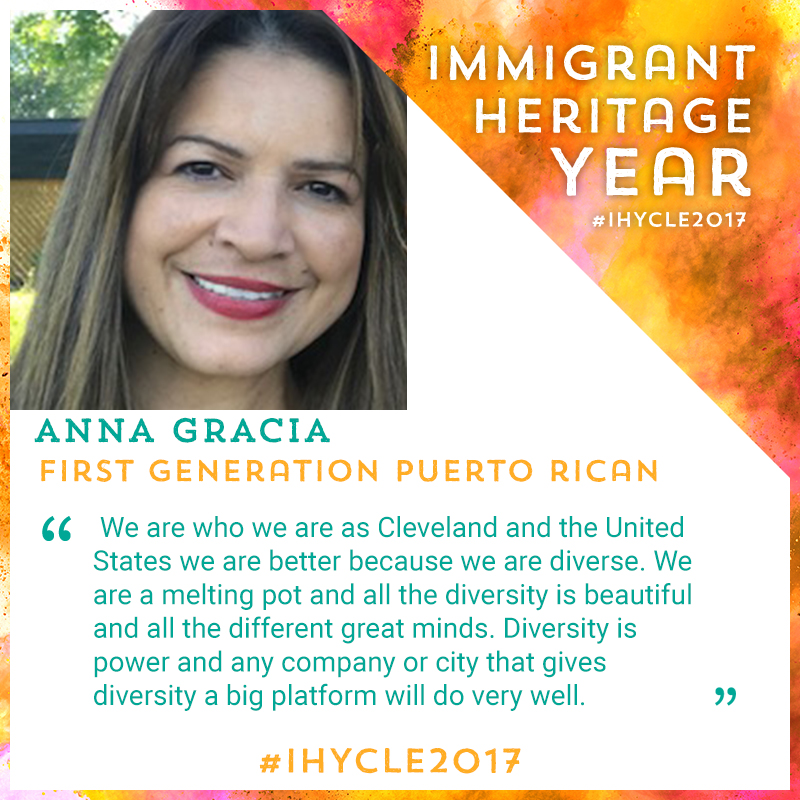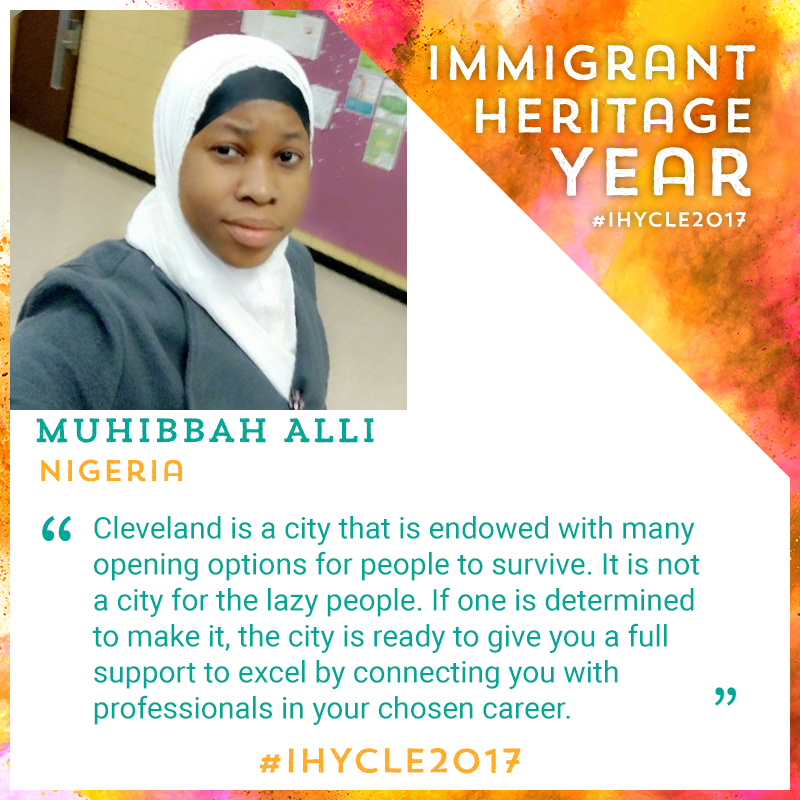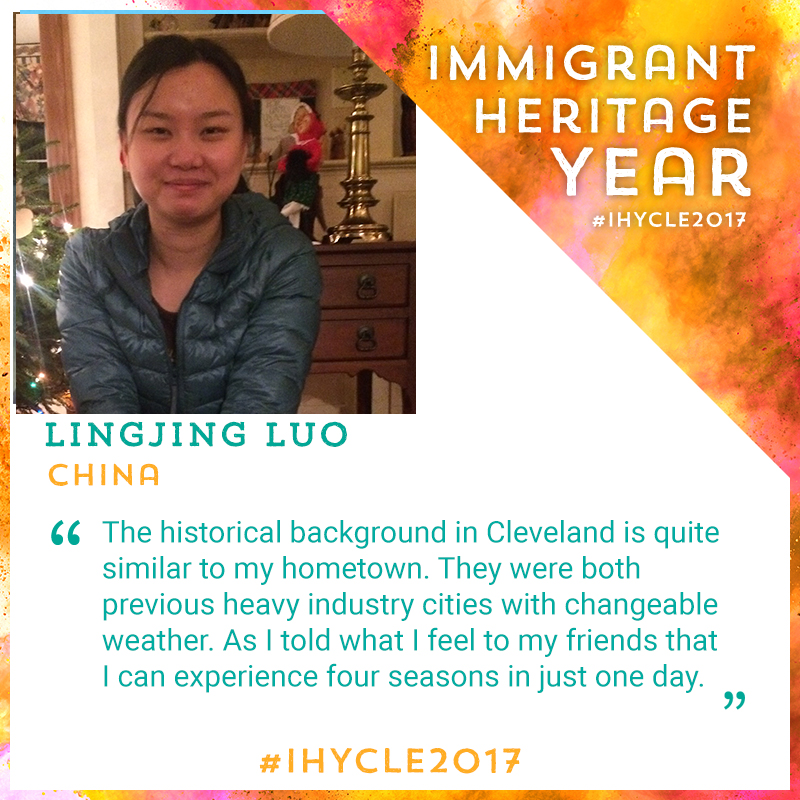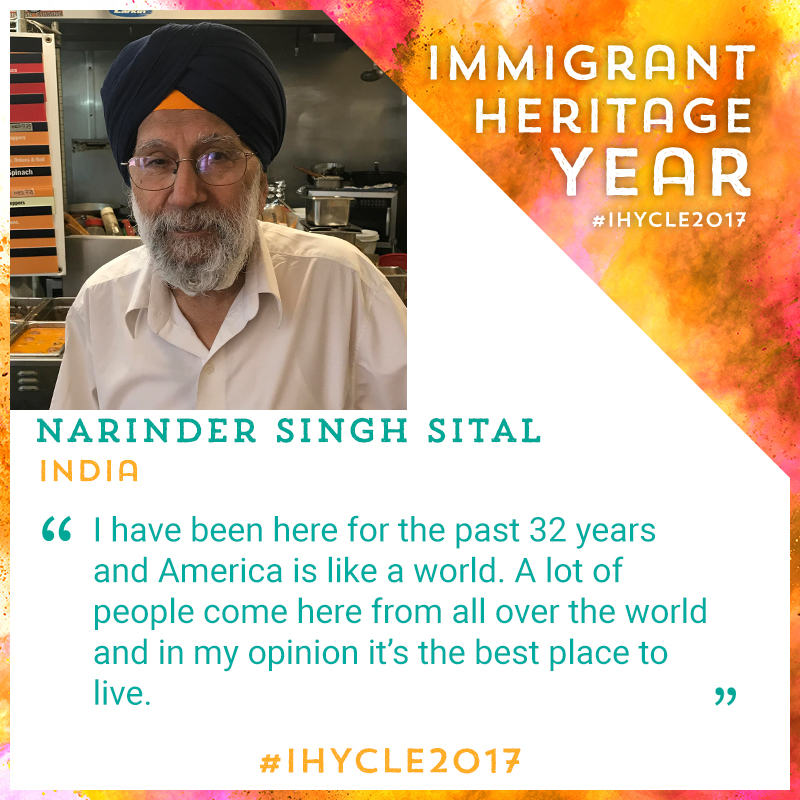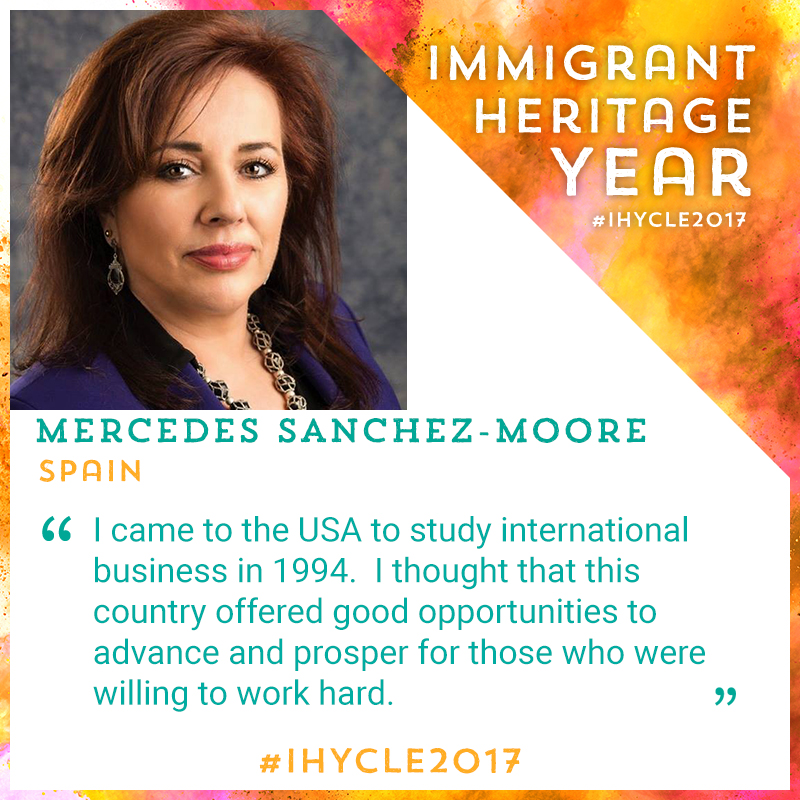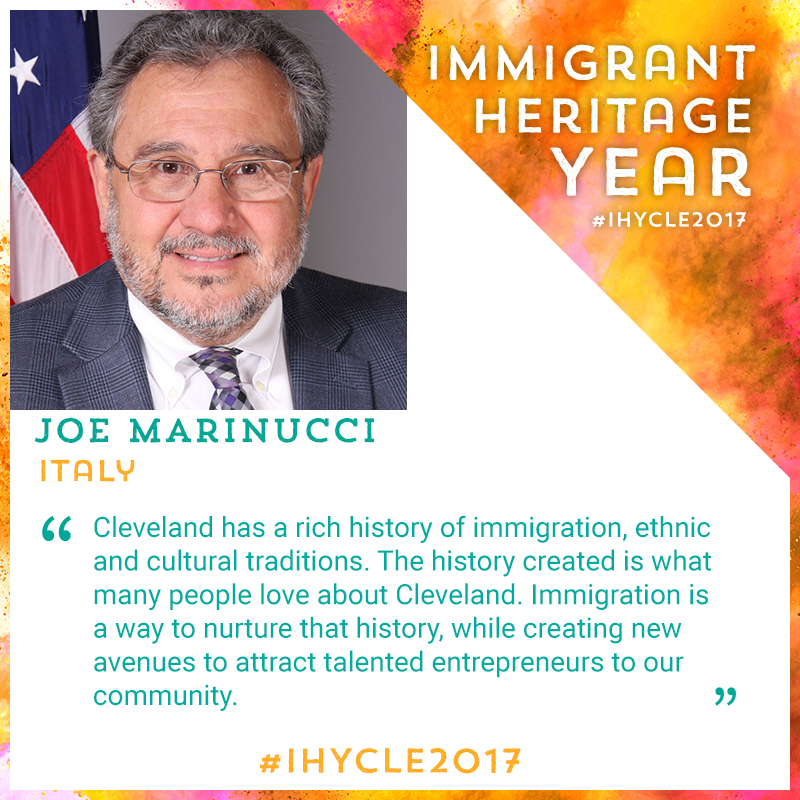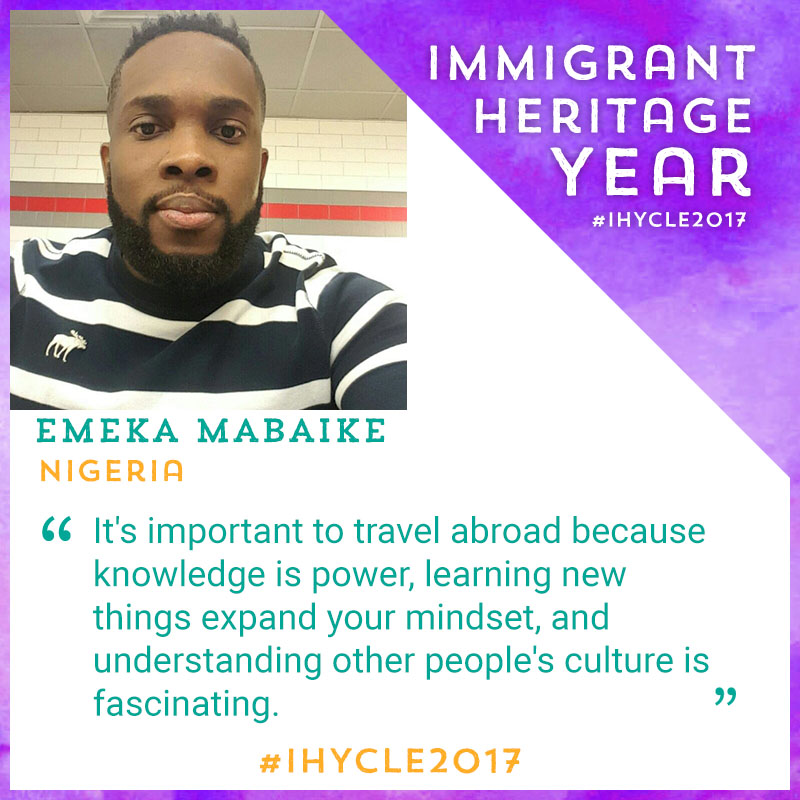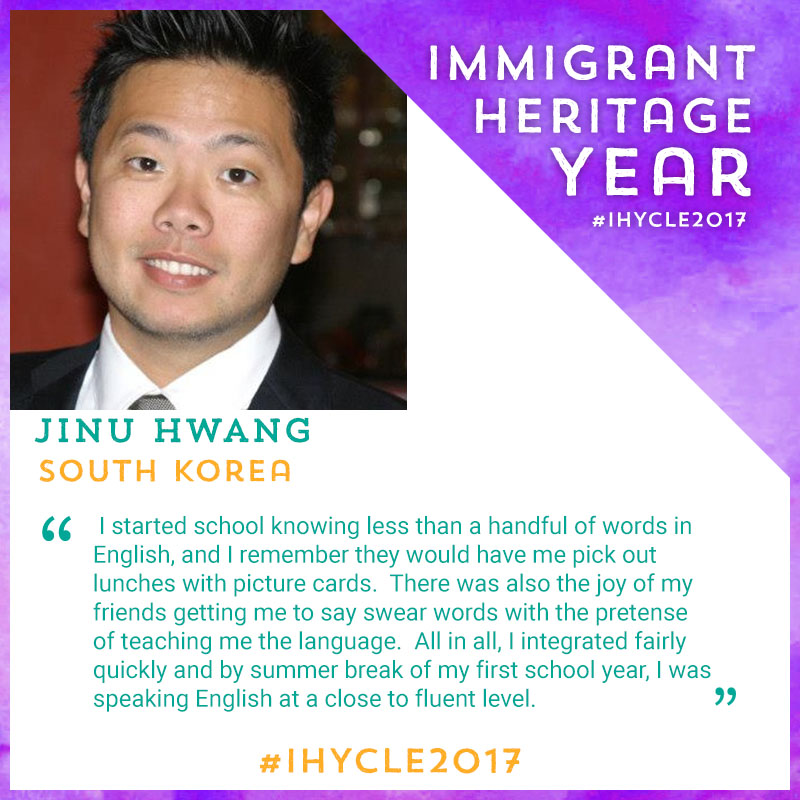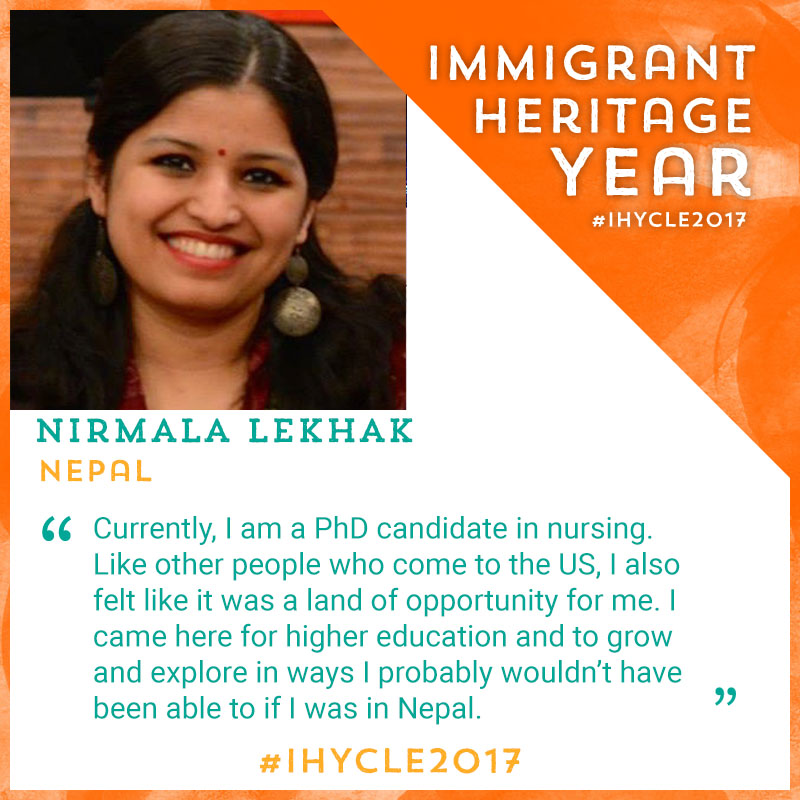Anna Gracia
Where are you from?
I was born and raised in Chicago and then when I was like 5-years-old my parents moved from Chicago to Puerto Rico because my mom missed Puerto Rico so bad and then we went and my dad tried getting a job but the job he had didn’t pay enough. We were there for a year, I remember going to pre-school in Puerto Rico and then we couldn’t make it over there and we had to come back to the States.
What was your childhood like?
My mom missed Puerto Rico a lot so everything in the house was Puerto Rican like the music, the TV was always in Spanish stations; my mom will speak to us in Spanish, thank God if not I wouldn’t know it because it’s a blessing in my life. So inside the house it was like been in Puerto Rico.
What brought you to Cleveland?
I am reporter and I had an agent who got me a job at Channel 5 and we have been here for 20 years.
What challenges did you face transitioning here?
I had to go to kindergarten in Chicago, so I learned Spanish first and when I had to go to kindergarten there was no bilingual back then it was just straight English. So I couldn’t understand anybody. Thank God I was young enough to pick up English after a week or so.
What is your occupation?
I do two things; I have a show, which I am really excited about. It’s about elevating the Hispanic community and I have business with United Healthcare, I sell medical insurance to seniors. I have done very well and I have nine people under me so I train everybody so they go all over northeast Ohio and do that.
What traditions or customs do you continue to practice?
During Christmas in Puerto Rico Santa does come but the big one is January 6th, which is the three king. So the big deal over there is the three kings so the three kings that came to Jesus they actually come and give you gifts. My mom brought the tradition when we lived in Chicago. So we would have to put grass and water for the camels.
What do you love about Cleveland?
When we got here everybody was so welcoming and loving. We have friends that are like family to us; I love the diversity in Cleveland I think we need to do a better job of showing all the diversity that is out here and sharing their story.
Why is it so important to welcome immigrants and refugees?
We are who we are as Cleveland and the United States we are better because we are diverse. We are a melting pot and all the diversity is beautiful and all the different great minds. Diversity is power and any company or city that gives diversity a big platform will do very well.
Why is it important to travel abroad?
Sometimes I think we get comfortable where we are. Especially if you live in a nice neighborhood or just used to your surroundings you have to kind of break out and get out of your comfort zone and get to know people and that way, I believe you are more accepting when you get out and travel and get to know people.
Muhibbah Alli
Where are you from?
I am from Nigeria
What was your childhood like?
I was born and raised in Lagos State, Nigeria. I came from a compound family and I am the last child of my mother. I had my elementary education to undergraduate level in Nigeria. The parental support and encouragement had been helping me to excel in my academics right from the kindergarten to the undergraduate level. In fact, emerging as the best graduating student of my department “Adult Education” in my undergraduate program gave me the opportunity to pursue my master’s program abroad. However, my educational pursuits have always been fun and interesting because I surrounded myself with people of positive mind and great ambitions.
What brought you to Cleveland?
I have come to Cleveland State to pursue my master’s degree program.
What were your first thoughts about coming to the United States? Did those change?
My thoughts are to get acquainted with my field of specialization which is “Adult Learning and Development” and to have a better understanding of how the program is planned and administered for a diverse population of adult learners in a variety of settings. Therefore, my plans have not changed.
What challenges did you face as transitioning here?
I faced a lot of challenges ranging from paying for an apartment, purchasing learning materials and other utility bills. In addition, while some people are friendly, some are very hostile which at times makes me feel unwanted here.
What is your occupation?
I am a student at Cleveland State University.
How have other Clevelanders made you feel welcomed?
Many of the Clevelanders I had met were wonderful people and full of fun to be with. I could remember my first day at Walmart to get some groceries. A middle-aged woman approached me with a smiling face. She asked of my country and how long I have been in the state. I replied I am from Nigeria and I had been in Cleveland State for just two weeks then. After the brief introduction, she asked me never to bother about paying the bills and she paid for my bill and offered me some words of encouragement that can keep me moving ahead in the state. It was indeed a memorable day for me. I also have a best friend here and we enjoy each other’s company.
What traditions or customs do you continue to practice?
Islam and at the same time promoting the culture of Africa.
What do you love about Cleveland?
Cleveland is a city that is endowed with many opening options for people to survive. It is not a city for the lazy people. If one is determined to make it, the city is ready to give you a full support to excel by connecting you with professionals in your chosen career.
Why is it so important to welcome immigrants and refugees?
It is very important to welcome immigrants and refugees wholeheartedly because it gives them a sense of belonging and makes them feel worthy of inclusion in the state physically, socially, morally, religiously, psychologically and culturally. In fact, welcoming them at its best will offer them more advantage to achieve their goals within the shortest possible time.
Why is it important to travel abroad?
Travelling abroad may be one of the most beneficial experiences for immigrants and refugees. For instance, as a college student in the United States pursuing my master’s program would give me the chance to see a side of my major “Adult Learning and Development” that I may not have been exposed to in Nigeria. In fact, it would be a wonderful opportunity for me to really experience and understand the people, their traditions and culture. It would also assist me to have a better understanding and appreciation of the nation’s people and history and to witness a completely new way of life as well.
Lingjing Luo
Where are you from?
I am from Chongqing, China.
What is your childhood like?
I was educated as a good-behaved child with positive thinking and easy-going personality. Even though I was bore in a common family where my parents were both blue collar workers, my parents raised me with their endless love and care. They let me feel I am always beloved and well-educated in hope for I will be the one who can share my love and care with people in need.
What brought you to Cleveland?
Can I shout it aloud without hesitation that my love for English and my dream of becoming an excellent English teacher brought me here? LOL
What were your first thoughts about coming to the U.S.? Did those change?
I came here to practice my English and to pursue my dream of becoming an excellent English teacher to the extent that my students love me and my colleagues respect me.
No, my dream and pursuit never, ever changed.
What challenges did you face as transitioning here?
Luckily, I had little challenges here physically and mentally. To be truth, I even did not feel the 12-hour time difference when I arrived in Cleveland; I used to buy Kirkland nuts though B2B websites. Furthermore, I learn English by picking up new words and the cultural background in American shows.
However, the only regret for me is the oral English has not built to meet my expectation as an English teacher.
What is your occupation?
I am now a graduate student in CSU in TESOL program.
How have other Clevelanders made you feel welcomed?
My classmates and professors here are nice. They let me feel comfortable and relaxed when I talk with them even though sometimes it was hard, to understand due to language barriers.
What do you love about Cleveland?
The historical background in Cleveland is quite similar to my hometown. They were both previous heavy industry cities with changeable weather. As I told what I feel to my friends that I can experience four seasons in just one day. In this way, Cleveland let me feel like I am in my hometown.
Why is it so important to welcome immigrants and refugees?
Firstly, let them feel acceptable in a brand-new community. Secondly, it is essential to create opportunities to let them know each other and build connection with new friends.
Why is it important to travel abroad?
To meet new friends, to have new opportunities, to lead promising future.
Narinder Singh Sital
Where are you from?
New Delhi India
What brought you to Cleveland?
I found a good opportunity and I came to Cleveland
What were your first thoughts about coming to the United States? Did those change?
The same thoughts….to make some money. Its okay I didn’t like it that much. I have been here for the past 32 years and America is like a world. A lot of people come here from all over the world and in my opinion it’s the best place to live.
What challenges did you face transitioning here?
Because of my identity I had little trouble but people are very accommodating they accepted us and are very friendly with us. I face no problem.
What is your occupation, or what are you studying?
I have my restaurant. I have a small Indian restaurant and me and my wife work to make some money…to live
What project or venture are you working on now that you’re excited about
I am not working on any other projects. I am about to retire now.
Mercedes Sanchez-Moore
Where are you from?
I am original from Madrid, Spain.
What brought you to Cleveland?
I moved from Columbus to the North-East Ohio region to pursue new employment opportunities with the City of Mentor.
What were your first thoughts about coming to the United States? Did those change?
I came to the USA to study international business in 1994. I thought that this country offered good opportunities to advance and prosper for those who were willing to work hard. Although my opinion has not changed, I have learnt that, cultural adaptation and social capital - relationship building and connections- play a very important role in an individual’s ability to succeed in this country.
What challenges did you face transitioning here?
There had been many challenges along the way. I have gone great lengths to adapt to the U.S. culture and lifestyle. Although I had a good command of the English language prior to moving to the U.S.A., it was challenging to study at the university using a second language. I worked very hard to advance my education up to a doctoral level while employed full time and taking care of my daughter. I also had to plan carefully and be very persistent in finding employment that was commensurate to my level of education, expertise and experience.
What is your occupation, or what are you studying?
I am Manager of International Trade at the Economic Development Department of the City of Mentor. I am responsible for helping local companies to expand overseas and for attracting foreign business to locate in our city. I love learning and am always studying something. Right now, I am completing my Economic Developer Certification.
What project or venture are you working on now that you’re excited about.
I am trying to organize reversed trade missions of foreign companies looking to enter the U.S. market. I am designing a training program to help them learn how to do business in the U.S., provide them with an overlook of business opportunities, and introduce them to potential clients and/or business partners. I hope to bring the first delegation of foreign business to Mentor within the next three months.
Andrea Villalon
Where are you from?
I'm from Monterrey, N.L. Mexico
What was your childhood like?
My childhood is lasting of great memories having family picnics, Sunday's lunch with all relatives and granny's house in Mexico City, dinner's holidays to get together for greeting each other, sharing stories and jokes, dancing, playing and enjoying delicious Mexican dishes cooked by my father, aunts and granny. I used to spend all summer vacations in Mexico City to visit museums and archeological zones for learning about culture, traditions, history and heritage.
What brought you to Cleveland?
I was relocated by the manufacturing company I used to work in Mexico in 2012 and join the Trade Compliance Corporate team and learn about US Laws and Regulations and contribute with their headquarters operation.
What were your first thoughts about coming to the United States?
I was very excited to come to US and start a new adventure in my life even all was uncertain and unknown I had the intention to learn and make new friends.
Did those change?
Every year in Cleveland has been better and better, definitely I can not complain I have had a huge personal growth and an amazing networking.
What challenges did you face transitioning here?
Basically to improve my English, however my Mexican accent still there and it is a signature of my heritage.
What is your occupation?
I was graduated from the University Autónoma de Nuevo León as International Relationship Bachelor Degree and studied a Master in International Trade. Currently, I work as a Trade Compliance Specialist with a Manufacturing Company in Cleveland, OH.
Are you a member of a sorority, fraternity, or any other civic or social organization?
Yes, I actively volunteer with Cleveland Council on World Affairs as a Diplomatic Citizen with the International Visitor Leadership Program that is hosted by State Department and work very close with the non profit organization I work with.
How have other Clevelanders made you feel welcomed?
Cleveland Society is very welcome, diverse, friendly and caring. I found a great sense of community with people from Cleveland that love to volunteer and help each other. Love it!
What traditions or customs do you continue to practice?
Honor our ancestors with prayers and flowers, music and dancing, prepare altars at home for honoring the Day of Death and our ancestors. I have Mexican handcrafts that decorate my apartment.
What do you love about Cleveland?
Wonderful happy people that is very responsible with environment! Lake Erie, Cleveland Art Museum, no pollution on the air, metro parks, educational options in the area are amazing!
Why is it so important to welcome immigrants and refugees?
We are one! To develop strong multicultural connections and unify for the good of this generation and future generations! We are global society and neighbors. Immigrants and refugees are brothers and sisters that will strengthen our region.
Why is it important to travel abroad?
As humans and living in one planet is important to have a Multi-Cultural Sensitivity and adapt to a global world that can promote peace and unity thru understanding social needs. Traveling will build confidence and develop new skills as networking, learning a new language and get out the comfort zone. Also, build a sense of volunteering with the most in need and celebrate our culture and other cultures!
Joe Marinucci
Where are you from?
I was born in Giuliano Teatino, I small town 15 kilometers from the Adriatic Sea in the Chieti province of Abruzzo, Italy.
What was your childhood like?
I was two years old when I came to the United States and Cleveland in 1956. My early childhood memories were of Little Italy, where everyone spoke Italian and Italian stores and merchants were at every corner in the neighborhood, which was anchored by Holy Rosary Church. I did not begin speaking English until I began to attend school.
What brought you to Cleveland?
My Uncle, Joe Marinucci, lived in the Little Italy Neighborhood of Cleveland and he sponsored our entry into the United States and helped my father secure his first job working as a steel worker in a copper smelting plant.
What were your first thoughts about coming to the United States? Did those change?
Since I was so young when I first came to the U.S., I don’t really have memories of coming to America. My parents have said I really enjoyed the 11-day boat ride from Naples to New York, and had “the run of the ship”. Being in an Italian speaking enclave, my early years were fairly normal for a growing child.
What challenges did you face transitioning here?
Once I began school, I had to learn the English language very quickly, which was a challenge since my parents spoke Italian at home – watching TV became a way to learn English more effectively. I also remember that during my early teenage years, I wanted to be more “American” and went through a period, pretty normal for a teenager, where I did not want to speak Italian anymore.
What is your occupation? Are you a member of a sorority, fraternity, or any other civic or social organization?
I am President & CEO of Downtown Cleveland Alliance, a non-profit organization dedicated to improving Downtown Cleveland. I am involved in numerous civic and professional organizations, most recently I was elected to the Board of the Union Club in Downtown Cleveland.
How have other Clevelanders made you feel welcomed?
During my early years, I attended Murray Hill School, a public school, and then Holy Rosary School, a parochial school associated with the church. My experience in those early years was very insular and very much tied to the Italian culture, which revolved around food, family, community, and the Church.
When I attended Cathedral Latin High School in University Circle, my world view changed and I met classmates and their families who were from all over Cleveland and made me feel extremely welcome.
What traditions or customs do you continue to practice?
We continue to value good food and family, and cherish some of our old-world traditions, from celebrating Christmas Eve with seven different fishes, to making and canning our own tomato sauce each September with “Nona”.
What do you love about Cleveland?
Cleveland is part of my DNA, so when you ask “What do you love about Cleveland?”, it is like asking “What do you love about family?”. For me, I love the entire experience of being a Clevelander.
Why is it so important to welcome immigrants and refugees?
Cleveland has a rich history of immigration, ethnic and cultural traditions. The history created is what many people love about Cleveland. Immigration is a way to nurture that history, while creating new avenues to attract talented entrepreneurs to our community. This strategy will create jobs for our new residents, but more importantly, for our existing residents.
Why is it important to travel abroad?
Travelling abroad allows you to experience directly different people and their respective communities. The knowledge we gain through these experiences allows us to recognize the similarities of different people and cultures, but first and foremost, to help us honor and celebrate the differences.
Emeka Mabaike
Where are you from?
I'm from Nigeria
What is your childhood like?
My childhood was like the average childhood of a Nigerian kid. Lived in a house with my parents, siblings of 4, uncles and aunts. Went to a boarding school, I wasn't really allowed to go outside the house to play but doesn't mean I am an introvert.
What brought you to Cleveland?
My dad brought me and the family to Cleveland because we had an opportunity to live in a better, developed country.
What were your first thoughts about coming to the U.S.? Did those change?
I can't really remember my first thoughts coming here but I remember I was determined to taste a cheese burger because people talked about it a lot while i was in Nigeria and after I did I was disappointed because I still think its widely overrated. I wish I could tell you more but I just can't remember. It's been 7 years.
What challenges did you face as transitioning here?
The challenges I faced transitioning here were speaking British English, some of the words they used here are obviously not what I used in Nigeria. For example: Americans say trunk and we say boot, football vs soccer, biscuit vs cookies etc. Another transition I faced was weather, my first snow experience was interesting, never experienced that extreme cold, I hated the snow but fun fact I love it now. Thirdly, I will say the accent, speaking and people still not understanding what you say was/is still challenging.
What is your occupation?
I am a student at Cleveland State
How have other Clevelanders made you feel welcomed?
I have been blessed to meet awesome Clevelanders whom helped me navigate and understand Americans better
What traditions or customs do you continue to practice?
I still practice Nigerian Independence day, I am Igbo and we have a tradition called New Yam festival etc.
What do you love about Cleveland?
What I love about Cleveland is the weather, I like the fact it has 4 weather changes, I love the Cavs, I love the fact it's not as busy as New York or Atlanta etc.
Why is it so important to welcome immigrants and refugees?
It's very important to welcome immigrants and refugees because it can be very lonely coming into a new country and they need someone to help them understand the ways and culture of how people and things work.
Why is it important to travel abroad?
It's important to travel abroad because knowledge is power, learning new things expand your mindset, and understanding other people's culture is fascinating.
Jinu Hwang
Where are you from?
I moved to the US along with my mom, dad, and sister from South Korea in 1991 when I was 8 or 9.
What was your childhood like?
When we were living in Korea, we lived in the back of a shoes/clothing/accessories store that my parents owned (like a very small department store or even a small "Footlocker" with more variety) on a busy market street, or at least that's how I remember it. I have no idea how I'm still alive because I distinctly remember almost getting hit by or hitting cars with my poor beat up bicycle on at least 3 separate occasions, and I have a pretty spotty memory of my childhood so there were probably quite a few more similar incidents. Other than playing in traffic, there were lots of kids in the neighborhood and we ran wild on the streets which was amazing compared to how things seem to be nowadays. I also remember summers in the country/farm part of Korea (which there was a lot more of back then) staying with my extended family for summer break. Outside of summer breaks in the countryside, schooling was strict and intense, and I distinctly remember thinking how much easier the homework load was comparatively when I started school in the US, and when the math teacher tested me here, they found that I was somewhere around a grade or two higher than the grade I entered. I started school knowing less than a handful of words in English, and I remember they would have me pick out lunches with picture cards. There was also the joy of my friends getting me to say swear words with the pretense of teaching me the language. All in all, I integrated fairly quickly and by summer break of my first school year, I was speaking English at a close to fluent level and I think I had a fairly average childhood from then on.
What brought you to Cleveland?
I didn't have much say in the matter, but my parents decided they wanted to move here after building up some savings in Korea to explore the opportunities in the States. The first few years were pretty painful for everyone in the family.
What were your first thoughts about coming to the United States? Did those change?
I felt excited, happy, sometimes sad and angry, and very very lost. I'm a lot more comfortable now, and after having traveled a fair bit for work and play, Cleveland is deep in my heart as is the US in general.
What challenges did you face as transitioning here?
The language was the beginning. Luckily for my sister and me, we learned the language quickly as kids... but going from a country of almost complete Korean homogeneity (I personally saw maybe a half dozen white or black faces while in Korea) to the inverse (when my sister and I got to our elementary school in the states, we doubled the number of Asian kids in a school of around a thousand kids), the sense of that huge loss in community is fairly striking, even if you are just a kid. Other than that, there's the normal stuff like the occasional racist outburst from strangers, some mild attempts at bullying (I was lucky to have many friends who offset this behavior), and just not being able to naturally fit into a new crowd. The typical challenges of an immigrant or minority, I think. At the time, I didn't think much of it... I just wanted to have fun. More of these feelings and memories hit me as I look back, but all in all, I was a happy kid.
What is your occupation?
I own a small CNC machining firm, specializing in defense and aerospace. I'm also a full time dad to my adorable not-quite 3 year old daughter, Mina and just turned 4 months son, Ren and husband to my ageless wonder of a wife, Denise.
How have other Clevelanders made you feel welcomed?
I have found that Clevelanders are generally the warmest, most sincere and have a habit of giving off that "good at the core" vibe in a way that I think is rare in many places on this planet. I'm a bit of an introvert and socially painful on my off days, and even with all my efforts at being socially terrible, I find that I'm welcomed in by strangers with a smile and generosity and that is probably one of those intangibles things that keep me around.
What traditions or customs do you continue to practice?
Our family was never one for tradition or customs much, but we have little things like the whole shoes off inside the house; I almost always converse in Korean with my folks (though not with my sister, unless we're scheming against unwitting english-only speakers); and other things that are more cultural than anything like being a bit more reverent of our parents than most of our friends. I'm sure there are things that my friends could easily point out, but I can't think of it since I think it's just "normal".
What do you love about Cleveland?
The balance of loud and quiet, the absolutely fantastic gaggle of restaurants that I would happily put up against just about any in the US; the quick and easy access to a great downtown scene without the non-stop insane traffic of bigger cities; the generally good-at-the-core variety of people who seem to be a midwest trademark that is still strong in Cleveland and Ohio in general. And I love that we as a city are underdogs, but are on our way up.
Why is it so important to welcome immigrants and refugees?
It is so important to have fresh blood and fresh perspective. Let's be honest... we still have a lot of room for improvement. And ultimately, it is what America is about: open, welcoming, diverse.
Why is it important to travel abroad?
Same as above. You can only glean so much from reading about a place... but you'll never get that sense of living and breathing it and truly understanding what things are like in another life and society.
Nirmala Lekhak
Where are you from?
I am from Kathmandu, Nepal.
What was your childhood like?
Overall, my childhood has been fun. Generally, my parents didn’t really discriminate in providing good education and other necessities between daughters and son (I have two sisters and a brother). But being born in a patriarchal society, there are certain societal and cultural norms that you have to follow, which made me feel like I am not as equal as men.
What brought you to Cleveland?
My first entry to USA was for undergraduate education at Wichita, Kansas, then I transferred to Davenport, IA. After my Bachelor degree in nursing, I worked for a year and half as a nurse. During that time, I met my husband, Tirth Bhatta. We got married in 2011 and I moved to Cleveland with him (he was already a graduate student at Case Western then). In 2012, I also got accepted to Case for PhD in nursing.
What were your first thoughts about coming to the United States? Did those change?
Like other people who come to the US, I also felt like it was a land of opportunity for me. I came here for higher education and to grow and explore in ways I probably wouldn’t have been able to if I was in Nepal. I was in certain level exposed to American life through movies and TV shows. Also, I thought when I land in the US, I will see tall buildings everywhere. I was surprised when I landed in Wichita and only saw flat lands, small buildings, and no crowds. I also realized that what they show in TV and movies is not total representation of what US is about (which is also the case for other countries, we tend to make generalization based on movies if we have never been to that country before). The US may be the land of opportunity, but as an international student, I felt like I wasn’t able to explore my potential as much because of the immigration restriction on F1 visa. However, I am thankful for the kind people I have met throughout my academic career and opportunity to grow as a leader.
What challenges did you face transitioning here?
Since I came right after my high school, I didn’t feel challenge in transitioning as there were enough help. However, as I mentioned above, restrictions for international students has been particularly challenging to explore my full potential. However, I have been fortunate to have support and opportunity to grow in ways I thought was not possible. Being an introvert, I thought leadership was not my forte, but I have been proven wrong. Sometimes we just have to try.
What is your occupation? Are you a member of a sorority, fraternity, or any other civic or social organization?
Currently, I am a PhD candidate in nursing. I am close to finishing my degree. I am a board member of Sigma Theta Tau International (an international honor society for nursing) local chapter (Alpha Mu) and Regional Chapter (Region 10). I was also one of the founding members of Nepali Akash, which is a non-profit organization established to provide support to underprivileged groups in Nepal. I have also been involved in Graduate Student organizations on campus at Case. I reactivated PhD Students Nurses Association at Case and served as its chair for two years.
How have other Clevelanders made you feel welcomed?
I have had very positive experience in Cleveland. People are really nice. Organizations/Departments such as International student services, International student fellowship, and other multicultural organizations are huge support for international students on campus.
What traditions or customs do you continue to practice?
We have Nepali American Organization of Ohio (NAOO), for which I served in board for two years as well. We continue to take part in their events. I also love to dance, so I have performed at NAOO’s events and other multicultural events to promote Nepali culture. We are also attached to our customs through food. We mostly cook Nepali food at home.
What do you love about Cleveland?
I think the hidden treasure about Cleveland is its diversity. There are also so many things to explore in Cleveland (e.g. Metroparks, Lake Erie) and being in driving distance to other big cities is a plus.
Why is it so important to welcome immigrants and refugees?
Simple, because they are human beings. All human being should have rights to explore this Earth. Also, loving your fellow human being makes you a better and happy person. Research has shown that altruistic behaviors are good for health.
Why is it important to travel abroad?
Because it takes you away from our bubble, reduces the biases we have formed as we grow up. Whether we want it or not, what we are taught as we grow is not in our control as it is pretty much what our parents, society and schools have taught us. One of the way we can teach ourselves is by travelling different places, exploring the differences, getting to know our own biases, and understanding the similarities in differences. We can only change when we accept.

